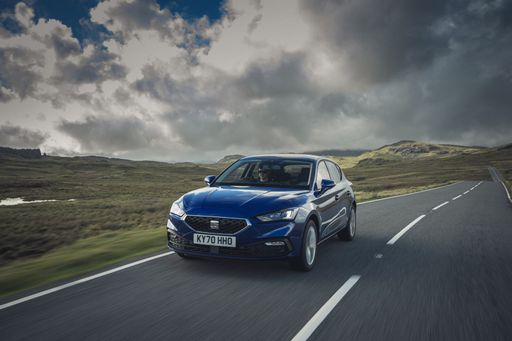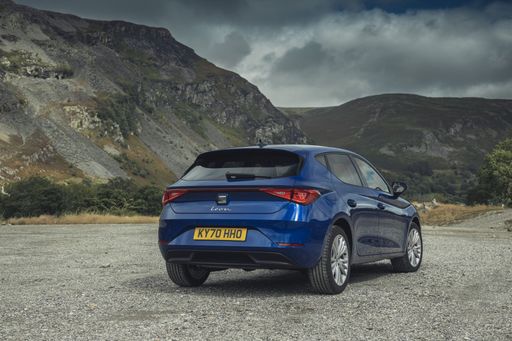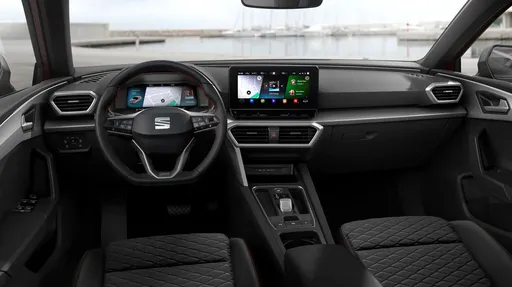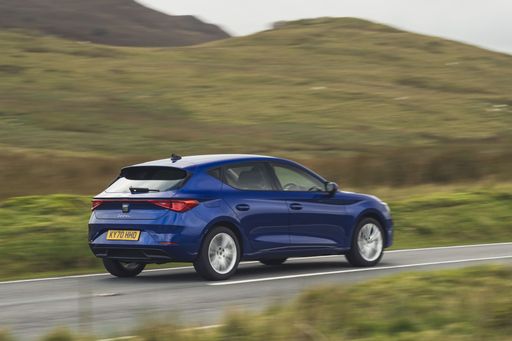Hyundai Bayon vs SEAT Leon - Differences and prices compared
Compare performance (90 HP vs 272 HP), boot space and price (20100 £ vs 24500 £) at a glance. Find out which car is the better choice for you – Hyundai Bayon or SEAT Leon?
Costs and Efficiency:
When it comes to price and running costs, the biggest differences usually appear. This is often where you see which car fits your budget better in the long run.
Hyundai Bayon has a evident advantage in terms of price – it starts at 20100 £, while the SEAT Leon costs 24500 £. That’s a price difference of around 4397 £.
Fuel consumption also shows a difference: SEAT Leon manages with 1.20 L and is therefore significantly more efficient than the Hyundai Bayon with 5.80 L. The difference is about 4.60 L per 100 km.
Engine and Performance:
Under the bonnet, it becomes clear which model is tuned for sportiness and which one takes the lead when you hit the accelerator.
When it comes to engine power, the SEAT Leon has a significantly edge – offering 272 HP compared to 90 HP. That’s roughly 182 HP more horsepower.
In acceleration from 0 to 100 km/h, the SEAT Leon is decisively quicker – completing the sprint in 7.70 s, while the Hyundai Bayon takes 11.90 s. That’s about 4.20 s faster.
There’s also a difference in torque: SEAT Leon pulls clearly stronger with 360 Nm compared to 172 Nm. That’s about 188 Nm difference.
Space and Everyday Use:
Cabin size, boot volume and payload all play a role in everyday practicality. Here, comfort and flexibility make the difference.
Both vehicles offer seating for 5 people.
In curb weight, Hyundai Bayon is a bit lighter – 1175 kg compared to 1344 kg. The difference is around 169 kg.
In terms of boot space, the Hyundai Bayon offers minimal more room – 411 L compared to 380 L. That’s a difference of about 31 L.
When it comes to payload, SEAT Leon slightly takes the win – 521 kg compared to 460 kg. That’s a difference of about 61 kg.
Who wins the race?
The SEAT Leon proves to be dominates this comparison and therefore becomes our DriveDuel Champion!
SEAT Leon is the better all-rounder in this comparison.

SEAT Leon
Costs and Consumption
View detailed analysis
Engine and Performance
View detailed analysis
Dimensions and Body
View detailed analysis
Hyundai Bayon
The Hyundai Bayon slips neatly between city runabout and small SUV, offering surprising practicality and a fresh, confident design that stands out in urban traffic. It's an easy buy for shoppers who want smart packaging, tidy handling and a dash of personality without fuss — a sensible little crossover that makes everyday driving a bit more enjoyable.
details




SEAT Leon
SEAT Leon pairs sharp, modern styling with a cabin that's sensible and slightly sporty, making it an appealing choice for buyers who want flair without fuss. It drives with eager composure and offers a neat balance of comfort and agility, so you get everyday usability with a wink of fun.
details



Costs and Consumption |
|
|---|---|
|
Price
20100 - 25800 £
|
Price
24500 - 36400 £
|
|
Consumption L/100km
5.80 L
|
Consumption L/100km
1.2 - 5.5 L
|
|
Consumption kWh/100km
-
|
Consumption kWh/100km
-
|
|
Electric Range
-
|
Electric Range
133 km
|
|
Battery Capacity
-
|
Battery Capacity
19.70 kWh
|
|
co2
130 - 132 g/km
|
co2
27 - 126 g/km
|
|
Fuel tank capacity
-
|
Fuel tank capacity
40 - 45 L
|
Dimensions and Body |
|
|---|---|
|
Body Type
SUV
|
Body Type
Hatchback
|
|
Seats
5
|
Seats
5
|
|
Doors
-
|
Doors
5
|
|
Curb weight
1175 - 1200 kg
|
Curb weight
1344 - 1657 kg
|
|
Trunk capacity
411 L
|
Trunk capacity
270 - 380 L
|
|
Length
-
|
Length
4368 mm
|
|
Width
1775 mm
|
Width
1799 mm
|
|
Height
-
|
Height
1442 - 1460 mm
|
|
Max trunk capacity
-
|
Max trunk capacity
1187 - 1301 L
|
|
Payload
450 - 460 kg
|
Payload
473 - 521 kg
|
Engine and Performance |
|
|---|---|
|
Engine Type
Petrol
|
Engine Type
Petrol, Petrol MHEV, Diesel, Plugin Hybrid
|
|
Transmission
Manuel, Automatic
|
Transmission
Manuel, Automatic
|
|
Transmission Detail
Manual Gearbox, Dual-Clutch Automatic
|
Transmission Detail
Manual Gearbox, Dual-Clutch Automatic
|
|
Drive Type
Front-Wheel Drive
|
Drive Type
Front-Wheel Drive
|
|
Power HP
90 HP
|
Power HP
116 - 272 HP
|
|
Acceleration 0-100km/h
11.9 - 13.3 s
|
Acceleration 0-100km/h
7.7 - 10.5 s
|
|
Max Speed
-
|
Max Speed
197 - 220 km/h
|
|
Torque
172 Nm
|
Torque
220 - 360 Nm
|
|
Number of Cylinders
3
|
Number of Cylinders
4
|
|
Power kW
66 kW
|
Power kW
85 - 200 kW
|
|
Engine capacity
998 cm3
|
Engine capacity
1498 - 1968 cm3
|
General |
|
|---|---|
|
Model Year
2025
|
Model Year
2024 - 2025
|
|
CO2 Efficiency Class
D
|
CO2 Efficiency Class
D, B
|
|
Brand
Hyundai
|
Brand
SEAT
|
What drivetrain options does the Hyundai Bayon have?
The Hyundai Bayon is available as Front-Wheel Drive.
The prices and data displayed are estimates based on German list prices and may vary by country. This information is not legally binding.




